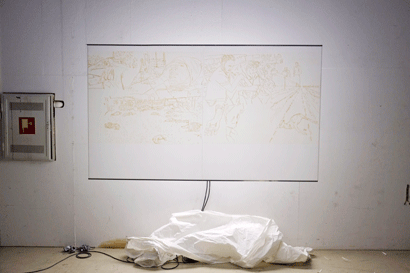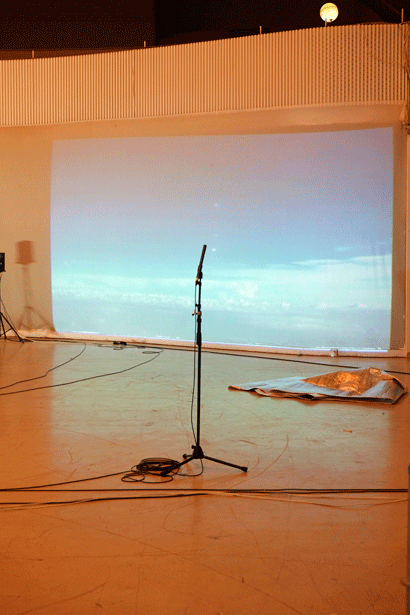theatercombinat | 27th september 2014, 2.00pm - politics of paradise and catastrophes, theatercombinat & FFT dusseldorf in cooperation with heinrich-heine university dusseldorf (institute of cultural and media studies, d). language: english |
|
|
"that it keeps going on like this is the catastrophe," walter benjamin wrote a few years before world war ii and contradicted the common belief that catastrophe was something lying ahead of us. at the same time he hit the core of modern civilisation which is based on the trust in ongoing progress and economical growth and with its evermore renewed promise of a better life. benjamin also doubted the concept of time as a continuum and history as a chronology. paradise and catastrophe therefore are situated neither in the future nor in the past, they are rather layers of any present age, made of traumatic memories and the promise of happiness, able to turn any given moment into an event. the symposium will examine political and philosophical strategies of catastrophe and paradise, compare narratives and distinguish concepts of time. international theoreticians from different geo-political perspectives hold short lectures and meet in a dialogue directly after that. these dialogues are extended to discussion with the audience. |
 photo: robert pufleb photo: robert pufleb |
|
with: prof. dr. reinhold görling (d) |
| catastrophic paradise will be accompanied by the symposium and is part of the larger performative research-project (katastrophen 11/15) ideal paradise by claudia bosse and theatercombinat and at the same time part of the international coproduction series DECOLONIZE! performative strategies for a (post)colonial age by FFT dusseldorf in cooperation with heinrich-heine university dusseldorf (institute of cultural and media studies). SYMPOSIUM
PREMIERE catastrophic paradise by claudia bosse location (for both events) admission after registration only (for both events) infos |
 photo: robert pufleb
photo: robert pufleb |
ABSTRACTS federica bueti
sotirios bahtsetzis reinhold görling |
www.theatercombinat.com theatrale produktion und rezeption